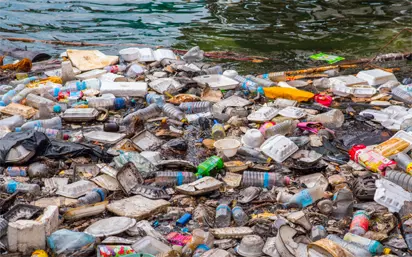Nigeria’s vast coastal resources, including lagoons and inland waterways, are suffering from severe neglect and pollution, hindering their potential contribution to the nation’s economy, according to maritime stakeholders. These experts have identified Nigerian lagoons, particularly Tarkwa Bay and Bonny, as some of the most polluted marine environments in the world, overflowing with waste dumped from land-based sources. This dire situation contrasts sharply with the vibrant maritime economies of other nations that leverage their coastal resources for tourism, transportation, and sustainable development. While countries like France utilize their rivers for bustling ferry services and economic activities, Nigeria’s lagoons remain largely deserted and polluted, reflecting a lack of appreciation for the economic potential of these vital ecosystems. This “sea blindness,” as described by Rear Admiral Francis Dan Akpan (retd), poses a significant threat to Nigeria’s economic future.
The neglect of Nigeria’s coastal resources stems from a combination of factors, including environmental mismanagement and the absence of concrete action plans to harness these resources sustainably. Tons of waste flow through lagoons and drainage systems, eventually emptying into the Atlantic Ocean, creating a detrimental impact on marine life and ecosystems. This pollution not only damages the environment but also undermines the potential for economic activities such as fishing and tourism. The stark contrast between the bustling ferry services on the Seine River in Paris and the desolate state of Nigeria’s lagoons highlights the missed opportunities for economic growth and development. The stakeholders emphasize the urgent need for a shift in mindset and a concerted effort to address the pollution and neglect plaguing these valuable waterways.
While the recently concluded National Policy on Blue Economy offers a promising framework, concerns remain about its effective implementation. Experts acknowledge the policy’s potential but caution that translating it into tangible action is crucial for realizing its benefits. Nigeria possesses a wealth of coastal resources, including opportunities for maritime tourism, transportation, and other ocean-based industries. However, these opportunities remain largely untapped due to a lack of investment and sustainable management practices. The contrast between Nigeria’s underutilized coastal assets and the thriving maritime economies of other nations underscores the urgency of implementing the Blue Economy policy and unlocking the full potential of these resources.
The Nigerian Navy International Maritime Institute of Nigeria (IMION) organized an executive course on the Blue Economy for media practitioners to raise awareness about these critical issues and empower journalists to play a more active role in promoting sustainable ocean governance. The course aimed to equip journalists with the knowledge and tools to effectively report on topics such as marine conservation, sustainable fisheries, blue energy, and the socio-economic dimensions of ocean management. By enhancing the media’s understanding of these complex issues, IMION seeks to foster more informed public discourse and influence policy decisions related to the sustainable development of Nigeria’s maritime sector. This initiative recognizes the crucial role of the media in shaping public perception and advocating for responsible ocean governance.
Rear Admiral Thaddeus Udofia (retd), Director General of IMION, highlighted the increasing pressures faced by oceans worldwide due to unsustainable practices and climate change. He emphasized the importance of the media in raising public awareness and promoting environmental stewardship. The executive course encouraged journalists to explore the vast economic opportunities within Nigeria’s ocean spaces and to leverage their voices to advocate for sustainable practices. The collaboration between maritime journalists and the Nigerian Navy is seen as essential for promoting transparency, national security, and the overall development of Nigeria’s blue economy. This partnership aims to ensure that the media plays an active role in holding stakeholders accountable and promoting responsible ocean management.
The President of the Maritime Reporters Association of Nigeria, Godfrey Bivbere, expressed gratitude for the training provided by IMION, acknowledging its contribution to enhancing the professional understanding of the maritime sector among journalists. He emphasized the importance of sustained collaboration between the media and key stakeholders, particularly the Nigerian Navy, in promoting transparency and development within the maritime industry. This collaboration is seen as crucial for fostering a more informed and engaged public discourse on maritime issues, ultimately contributing to the sustainable development of Nigeria’s blue economy. The training provided by IMION is a significant step towards empowering journalists to effectively report on the complex challenges and opportunities within this vital sector.














